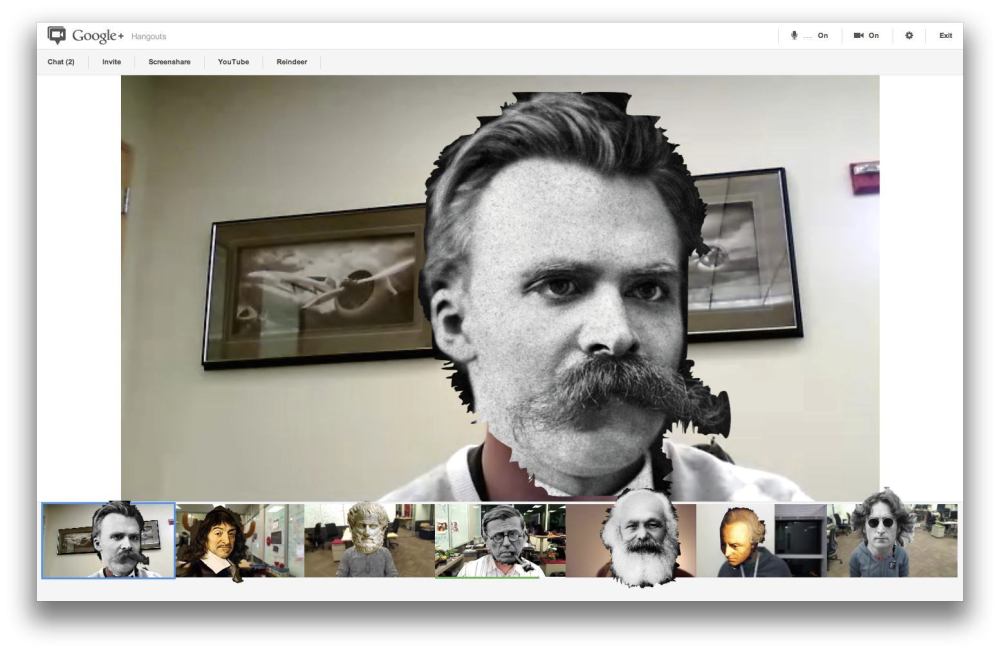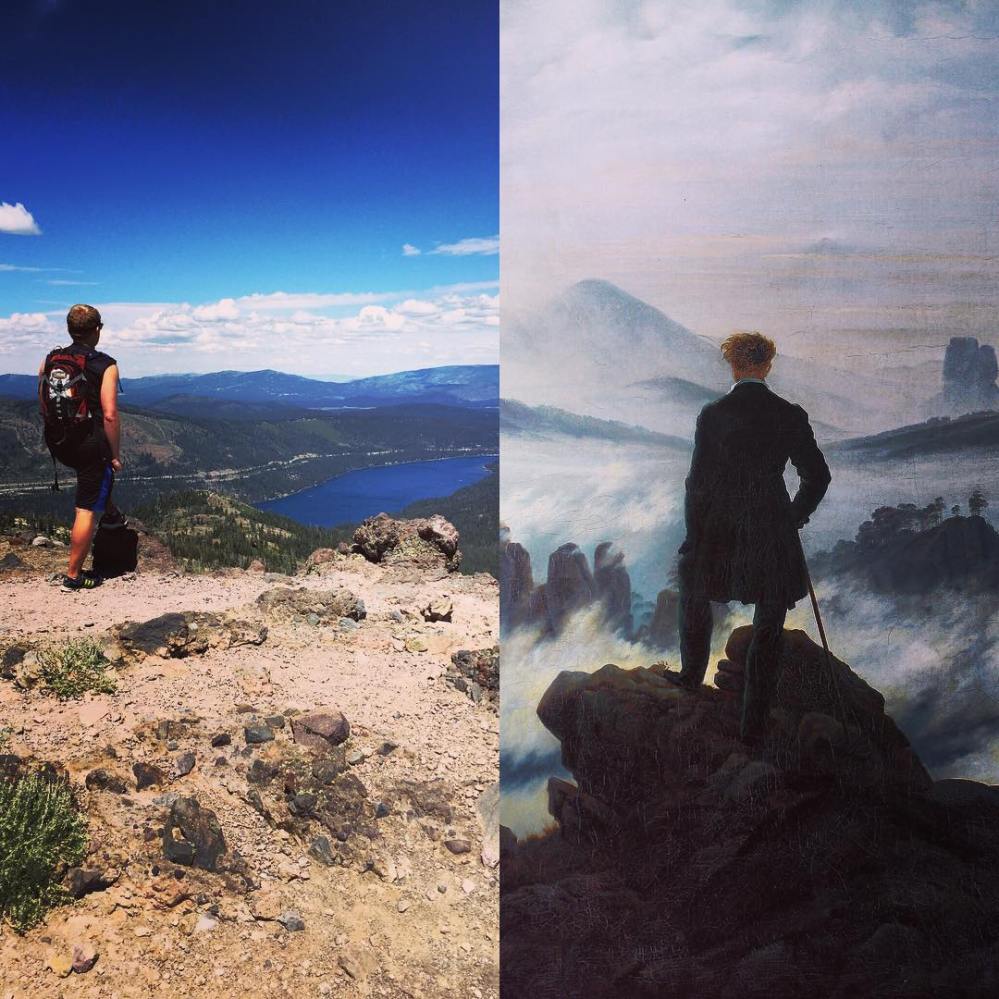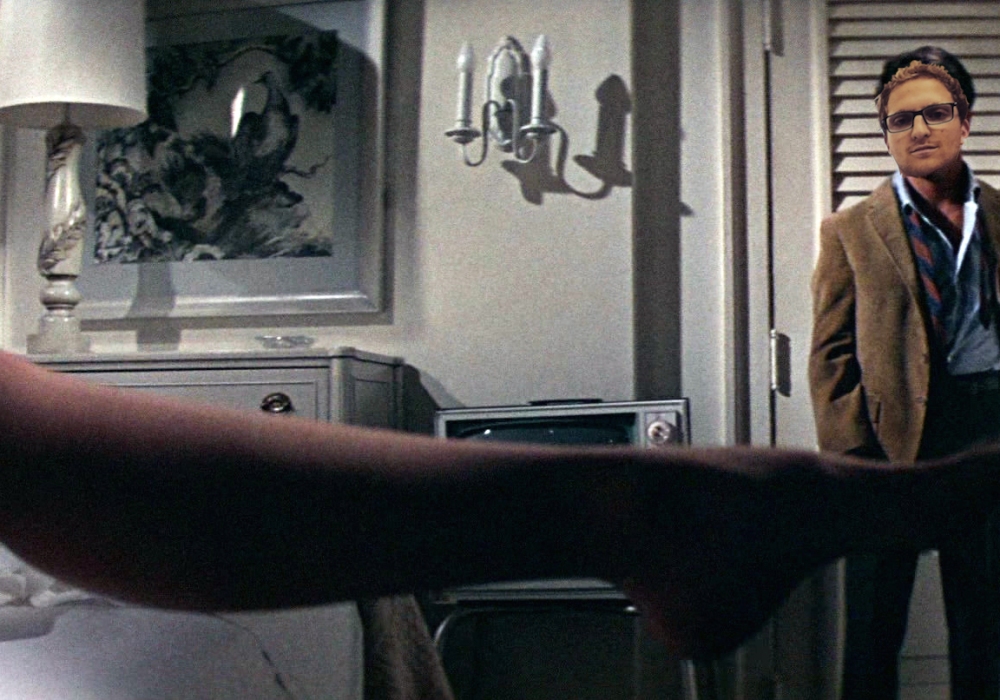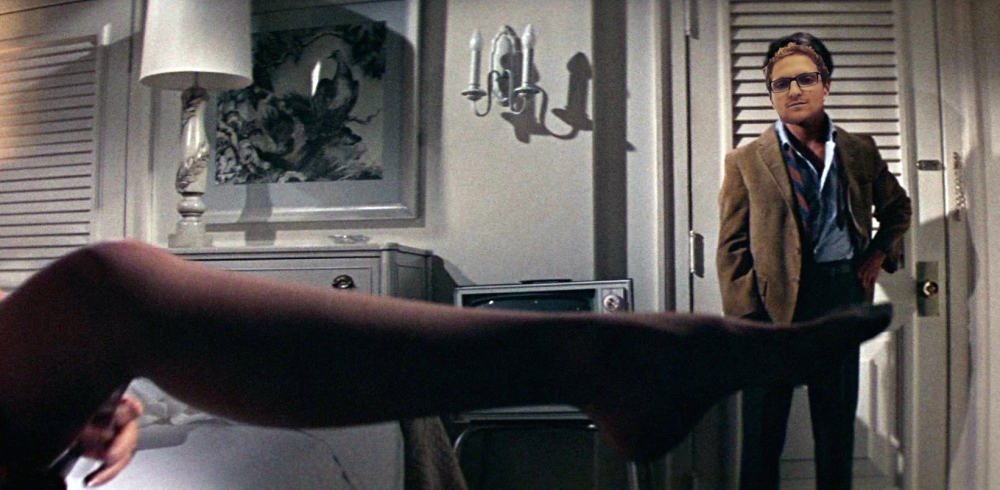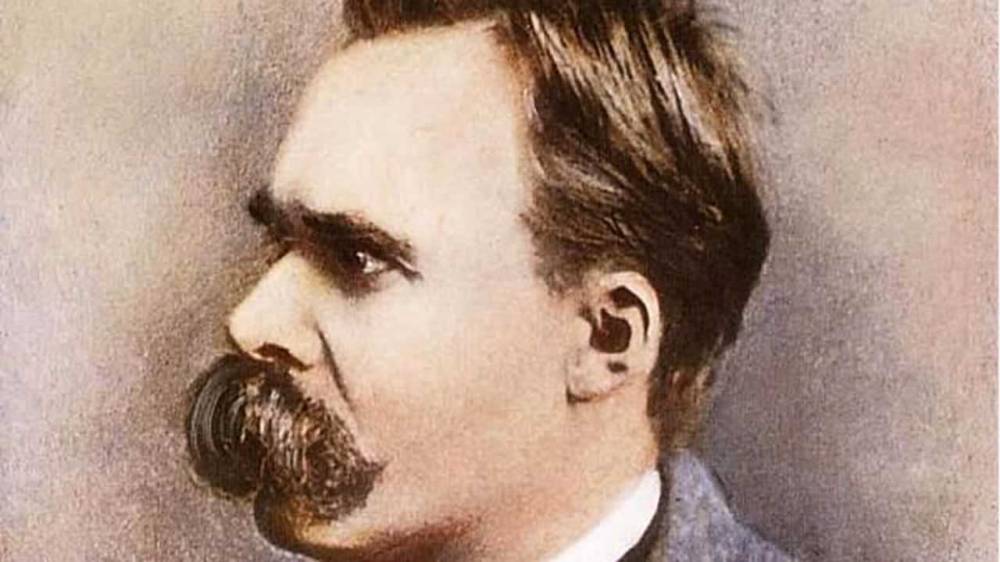Peace in the Middle East Hinges On Assuaging the Ancient Jewish Distrust
*Note: I was going to write about Kanye for today’s post, but I felt as though this was more important to say. As for Nietzsche’s thoughts on the matter, he’d just be upset that the Israelis, Palestinians, Iranians, Americans, and everyone else haven’t overcome their attachment to the values underlying the conflict.
As a rule, I tend to stay away from writing about issues concerning Israel. The tiny country is controversial enough as it is, and the fact that siding with or against Israel has become an increasingly polarized issue in the United States puts a limit on how much meaningful debate can happen about American-Israeli and Israeli-Palestinian relations. Furthermore, as a Jew I fear that my own biases will subconsciously creep into anything I have to say. (I’ll make every effort to approach this article objectively.)
But with Israel once again in the news (surprise), this time concerning the Iran nuclear deal, I think there’s never been a more appropriate time to truly dig into why Israel acts the way it does on the international stage. If the goal of diplomacy and global relations is to make the planet a peaceful and prosperous place—surely that should be the goal—it is vital to understand the collective values, beliefs, and psyche that power a nation and motivate its leaders. Israel operates under a microscope whose powerful magnification has exposed every single flaw in the way it treats the people who live within and outside of its borders, but that microscope rarely seeks to understand, for better or for worse, the psycho-historical bases of these behaviors. To treat the problems, these bases must first be uncovered.
The first and most important idea to understand is the state of Israel is irrevocably linked to the Jewish people. Many Jews will be quick to point out that the two are not equivalent, and in fact total equivocation of Israel and Jews creates many problems given that one is a state and the other is an ethnic group, but that some degree of inseparability exists is undeniable. Israel’s inaugural and current governmental system was founded by a bunch of early 20th century European Jewish immigrants to the land that was then and still called Palestine, people who were motivated by anti-Semitism in France and pogroms in Russia to seek a place where they could build a safe haven and become a self-determining nation. Nationalism was all the rage across the Western world at the time, a cause that sparked World War I and a core principle of the Fourteen Points Woodrow Wilson proposed at the end of that conflict, and the particular nationalist movement involving Jews was dubbed Zionism.
While other nation-states formed from the breakup of Austria-Hungary, it took the murder of six million Jews by the Nazis to build up the international momentum for Britain to cede control of Israel to the Jewish settlers there. Of course, in the process, many of the local Arabs were unceremoniously booted off their land, and ever since then the “right of return” has been an insurmountable obstacle in the path to peace between Jewish Israelis and Arab Palestinians. Part of the reason why is that Israel remains committed to its Jewish identity. The very words of the country’s national anthem proclaim this:
Hatikvah (The Hope) (English translation)
As long as the Jewish spirit is yearning deep in the heart,
With eyes turned toward the East, looking toward Zion,
Then our hope—the two-thousand-year-old hope—will not be lost:
To be a free people in our land, the land of Zion and Jerusalem.
So despite all attempts to solve the Arab-Iranian-Israeli conflict with an areligious focus squarely on the present—which would by all means be the easiest, most practical, and best way to approach the problem—this is an issue that goes back as far as the history of the Jewish people. And the history of the Jewish people is one built largely on a distrust of outside forces, a distrust that may seem anachronistic today but came about for countless understandable reasons.
The Jewish claim to Israel is rooted in God’s covenant with Abraham, but Jewish distrust is rooted in the ancient Hebrews’ experience in Egypt. For generations following Joseph’s successful interpretations of one of Pharaoh’s dreams, the twelve sons of Jacob had lived in Egypt and become successful. But in time, a new pharaoh came into power, one who did not remember Joseph and his good standing. The Torah recounts the events that followed:
“He said to his people, “Behold, the people of the children of Israel are more numerous and stronger than we are. Get ready, let us deal shrewdly with them, lest they increase, and a war befall us, and they join our enemies and depart from the land.” So they appointed over them tax collectors to afflict them with their burdens, and they built store cities for Pharaoh, namely Pithom and Raamses. but as much as they would afflict them, so did they multiply and so did they gain strength, and they were disgusted because of the children of Israel. So the Egyptians enslaved the children of Israel with back breaking labor.” (Exodus 1:9-13)
There exist a few key elements to this story:
The first is that, for the first time in the Bible, the Israelites are singled out as “outsiders.” Judaism, unlike most other major world religions, is an ethnic religion, meaning that its followers originated from a common ancestor and more members of the faith arise almost exclusively by reproduction, with no emphasis placed on missionary work. Thus Jews are united by a feeling of familial connection which not only tightens the bonds between members of the group as compared to other religious factions, but also makes the group more identifiable and more likely to be singled out.
The second is that the Pharaoh assumes the Israelites pose a danger to his kingdom. Perhaps he is merely suffering the effects of ingroup-outgroup bias, but the behavior is one that the Jews have seen repeated over and over throughout history: Jews exist in our community, and they will do bad things to us (like poison our water supply, use our children’s blood to make matzah, manipulate the financial markets, etc.).
The third, and most important, is that the Israelites, in a land where they once were welcomed, prosperous, and noted for their success, were systematically betrayed and discriminated against by the country they called home. Once, Joseph had been hailed as a savior in Egypt; now, his descendants were a threat that had to be eliminated.
With the exception of times when Israel existed as a sovereign land and arguably in the United States Post-Cold War, the story of the Israelites and the Jews they would become is one of maltreatment in countries they did not rule. This abuse has ranged from the cultural elimination attempted by the Seleucids, the destruction of the Second Temple, and the mass murder of European Jews during the Crusades to the expulsion from Spain, the pogroms of Eastern Europe and, of course, the Holocaust. Because that last atrocity occurred with the world watching and with the forces of Zionism having built up for decades previously, it served as the impetus to the creation of modern Israel. Other than that, you’d be hard-pressed to find any sort of reparations paid to the Jewish people for millennia of attempts to destroy them.
The Jews, obviously, are far from the only historical group to suffer persecution. And it’s not as if a Jewish state, when it has existed, hasn’t itself been guilty of being the perpetrator. But the Jewish people’s response to persecution is unique, deep-rooted, and proves crucial to any understanding of modern Israel’s behavior.
The earlier passage from Exodus mentions the way the Israelites responded to Pharaoh’s initial strategy of heavy taxation and assignment to the worst jobs: “…but as much as they would afflict them, so did they multiply and so did they gain strength.” Rather than complaining to the Pharaoh and demanding equal treatment, the Israelites put their heads down and placed trust only in their own abilities to thrive under increasingly difficult circumstances. And because of the further success that came of their efforts, the Israelites found themselves enslaved.
While the Jews’ disproportionate flourishing (when they’ve been given the opportunity) can be attributed to a higher average intelligence, per one British study, the coexistent impulsion to hard work and self-reliance in the face of challenges can be attributed to this legacy of oppression. Over the intervening three thousand years, outside help for the Jews and Israel has come sparingly—most notably from America, where the ugly, all-consuming specter of African slavery and racism prevented Jews from ever becoming the primary targets of persecution. The world’s biggest act of aid to the Jewish people, the creation of Israel in 1948, may never have happened if the Holocaust had been mitigated by America and other European nations increasing their maximum allowed number of Jewish immigrants in the 1930s. By and large, the Jewish people have never been given a reason to trust anyone but themselves.
This leads us to the problems that plague Israel today. The nation has been singled out, for better or worse, for its unfair treatment of the Palestinians (whether or not this singling out is justified is one of those issues that has been polarized to the point where meaningful debate isn’t currently possible). Its leader has retained power by cultivating the religious right at the expense of international approval. Some doomsday prophets both inside and outside the country foresee it descending to the status of pariah state, joining the likes of the clinically-insane North Korean dictatorship and Apartheid-era South Africa in the history books’ most ignominious list. And now Israeli leadership is doing everything it can to drum up opposition to a nuclear deal that, though it will receive wide accolades at the UN and among American liberals, arguably poses an existential threat to the nation. Whether it actually does has been hotly debated, but that truth is irrelevant when the real issue—and a vital component of all Israel-related issues—is one of perception.
The Israeli Right, which controls the government and thus bears at least some responsibility for the Palestinian plight, holds more closely to the historically justified Jewish distrust than does the Israeli Left—and, for that matter, most non-Jews. In the same way that white people can never truly understand the black American experience, non-Jews who condemn Israeli policy can’t fully appreciate the three millennia of persecution that underlie the psyche of Netanyahu and other like-minded Israelis. These are people in whom the memory of the Holocaust runs as freshly as if it happened last week, who remain committed to the original purpose of Israel as founded in 1948: to provide the Jewish people with a safe place.
In such a context, comparisons of Israel’s treatment of the Palestinians to South African Apartheid make little sense. Regardless of how the extent of the oppression measures up and regardless of the current powerful position of Israeli Jews, the Apartheid was undertaken by a historically privileged group while the Israeli abuse of Palestinians is undertaken by a historically oppressed group that fears, above all else, a return to that maltreatment. Israel is the boy on the playground who kicks the injured boy on the ground because he suspects the fallen boy is only faking injury and will destroy him if given the chance to stand up. South African Apartheid was more like the Pharaoh who did not remember Joseph, fearing a majority population’s power and seeking to keep it in check by any means necessary. Both are clearly morally wrong, but the difference in motive behind the actions requires different approaches to each instance of oppression.
In such a context, Israel’s distrust of Iran makes total sense. After all, this is the most outspoken enemy of Israel (which, as I stated earlier, cannot be separated from the Jewish people) since Hitler, a country that has declared that among its goals is the total annihilation of the state. Again, regardless of what the deal will actually produce ten or twenty years down the line, this narrative of rising enemies and increasing feeling of isolation has to sound awfully familiar to the Israelis who are convinced that the sky is falling.
In such a context, the solution to every issue involving Israel and its neighbors is obvious: instead of leaping to criticize Israel at every turn, accusing it of war crimes, and demanding that it either cooperate with the international community or face boycotts, any nation hoping to help the Middle East become peaceful must first consider and break down the very real Jewish distrust that lies at Israel’s heart (and the Arab/Iranian distrust of Israel, too). If Israel could somehow be convinced that a totally liberated Palestinian-controlled Gaza and West Bank wouldn’t immediately take the offensive, if the world could somehow assuage Israel’s fear that the first Iranian nuclear bomb will be immediately fired at Tel Aviv, the Jewish state would instantly become far more agreeable on the international stage. The left side of its political spectrum is already more inclined to start this process, particularly regarding the Palestinians. Of course, such a trust-building exercise is a two-way street that would require the dropping of ancient prejudices on both sides.
The problem is that old beliefs die hard. And for a state like Israel, the proclaimed home of a people who has been persecuted almost ceaselessly since Pharaoh enslaved them in Egypt three thousand years ago, trust is going to be very, very hard to come by—especially now that it has seen its greatest supporter sit down at the negotiating table with its arch nemesis.
Assuaging the issue of Jewish mistrust is a necessary first step in the direction of Middle Eastern peace that has not yet happened. I’m not sure how such an alleviation of concern could even be accomplished, but it’s a strategy that must be attempted because turning up the international pressure on Israel isn’t working. It has only activated the oldest Israeli fear, and continuing to make the Jewish state feel isolated will prove counterproductive to the peace process going forward.



